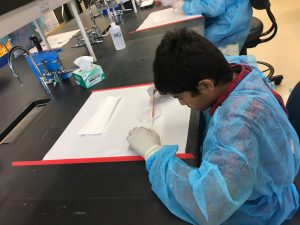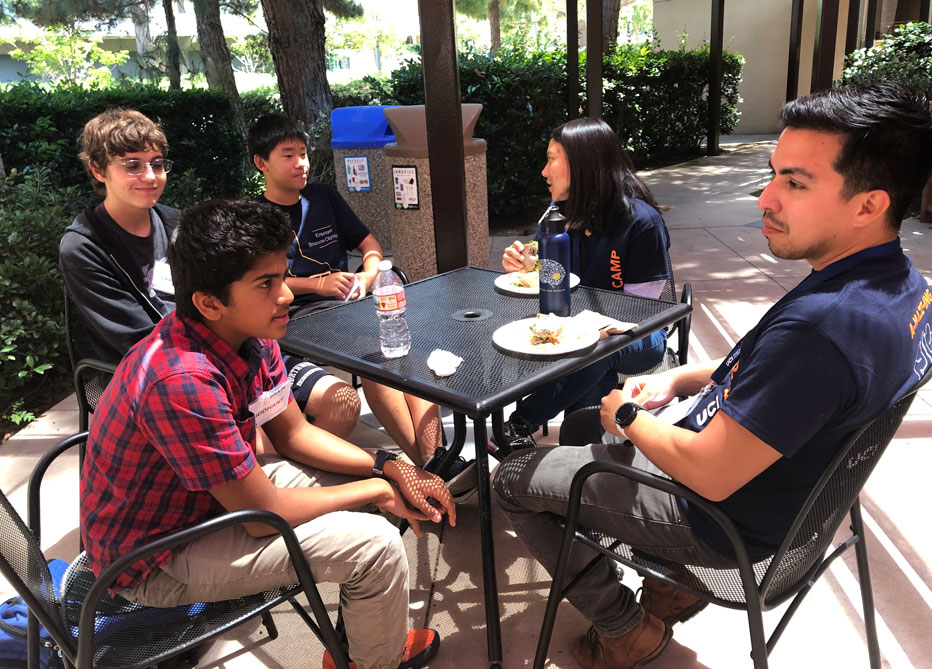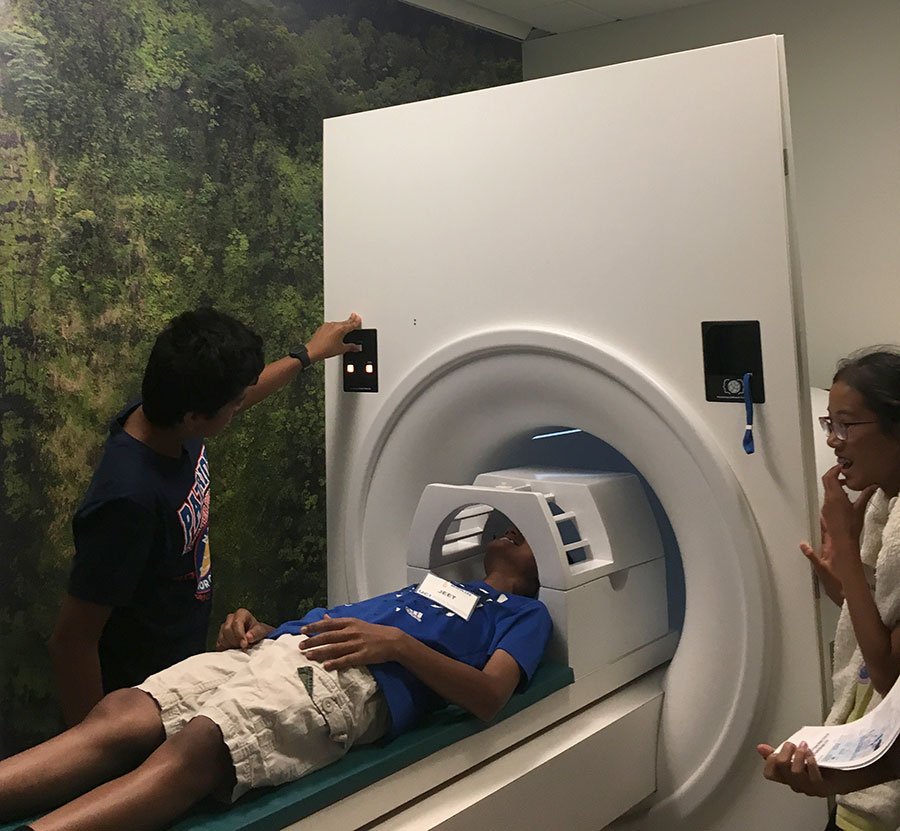UCI Brain Camp Student Selected to Present Research at International Conference

Siddhant learns how to mount a specimen on a microscope slide.
Many High School sophomores are eager to get their driver’s license so they can begin navigating the roads around them. Not Siddhant Karmali. This rising sophomore at Stanford Online High School is more eager to understand how our brains navigate 2D and 3D environments.
“Spatial memory is an essential field of study since studying it shows how neurons in certain areas of the brain work together to form maps of the environment and how they aid us in traversing these maps, especially in a virtual world,” said Siddhant Karmali. “This could be used to aid drivers, especially new ones, in driving more safely on roads by providing them with a two- and three- dimensional template of a road, which could then simulate traffic conditions. This model would allow drivers to navigate the ‘maze’ of traffic on a road safely and effectively.”
Siddhant participated in the Center for the Neurobiology of Learning and Memory’s inaugural 2019 Brain Camp where he was inspired to take his research to an international audience. He was accepted to present his research at the 5th Annual International Conference on Industrial Engineering and Operations Management in Detroit, Michigan in August 2020.

Siddhant and his peers enjoy lunch in the CNLM courtyard with Brain Camp instructors Michelle Run and Freddie Marquez
“Siddhant is extremely ambitious and disciplined,” said Hamsi Radhakrishnan, a UCI graduate student and co-chair of the CNLM Ambassador Program's K-12 programs committee. Hamsi was Siddhant's mentor at the 2019 Brain Camp. “What's even more impressive is that he continued working on the project even after Brain Camp was over and maintained contact with me to make sure he was conducting his science in a thorough and comprehensive way.”
UCI Brain Camp is a summer neuroscience immersion program for middle and high school students. The two-week, full-day program features lectures and seminars, workshops, laboratory tours and a wide variety of hands-on laboratory activities and experiments.
During the second week of Brain Camp, students form groups of 3-4 to work with a graduate student mentor to design and carry out an experiment using the concepts they learned the first week. Siddhant’s group explored whether an individual’s performance in a Minecraft Maze (a maze Siddhant built from scratch) was correlated with their performance on the Rey-Osterrieth Complex Figure Test (Rey-O) task, a standard test of spatial cognition. However, after two days of designing the Minecraft Maze, Siddhant’s computer crashed and he lost all his work. Despite his disappointment, he showed grit and perseverance by staying up all night and rebuilding it from scratch, so it was ready by the time the experiment started the next morning.

Siddhant and his peers enjoy lunch in the CNLM courtyard with Brain Camp instructors Michelle Run and Freddie Marquez
Siddhant's group also wanted to whether the memory of a maze would transfer between a two-dimensional (using a printed picture of the maze in birds-eye-view) and a three-dimensional environment. While they didn't observe a statistically significant improvement in performance in the three-dimensional maze after having done the two-dimensional maze first, they discovered that a participant's performance on the Rey-O task was positively correlated with their improvement in performance on the three-dimensional maze.
“UCI Brain Camp was designed to inspire a life-long love of science and discovery,” said Manuella Yassa, UCI Brain Camp founder and CNLM Director of Outreach and Education. “I am thrilled that Siddhant has continued to work with his UCI Brain Camp mentor and will be presenting his research at a conference to a broad audience.”
UCI Brain Camp was cancelled this summer due to COVID-19. Instead, High School students were invited to apply to participate in a free Virtual Journal Club in the Neuroscience of Learning and Memory with mentorship from the CNLM Ambassadors as well as undergraduate students from the UCI Neuroscholars Program and Nu Rho Psi. The program received applications from more than 200 students which Yassa views is an indication of the need for virtual programs that enable students to continue to pursue their interests in neuroscience.
“One of the benefits of offering a virtual program is that we have participation from students from all over the country,” said Yassa. “The students are engaged and have enjoyed the program so far. We hope to continue with more virtual programs in the Fall.”
To find out more about K-12 education at UCI CNLM, visit explorethebrain.org
